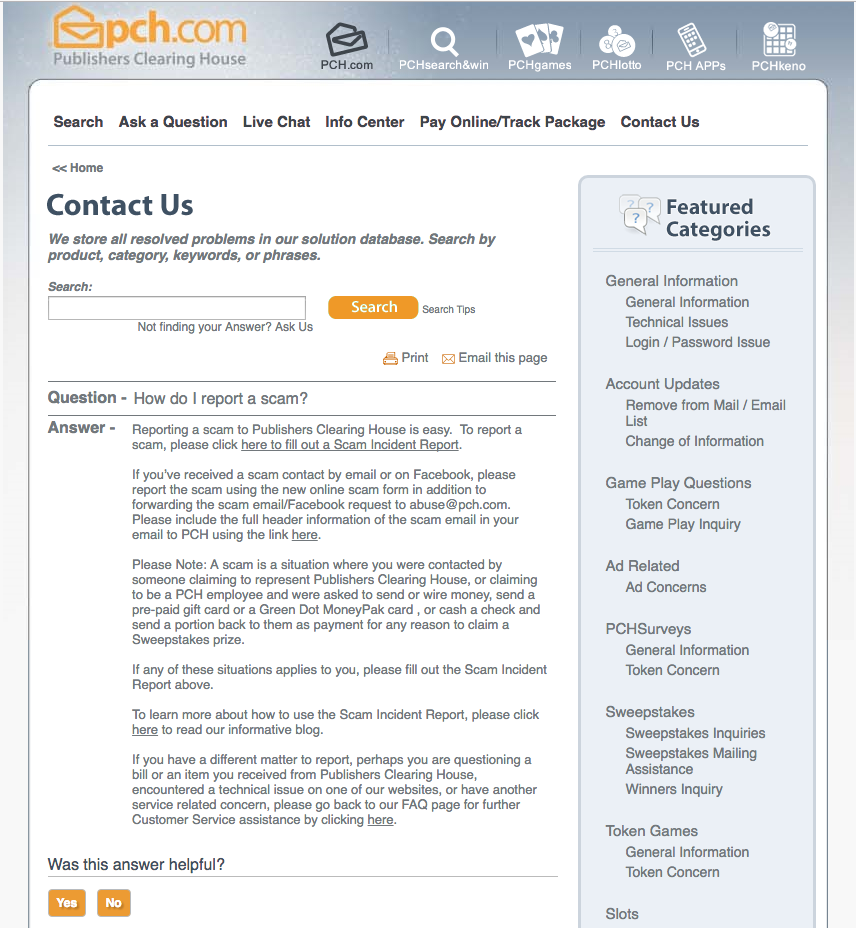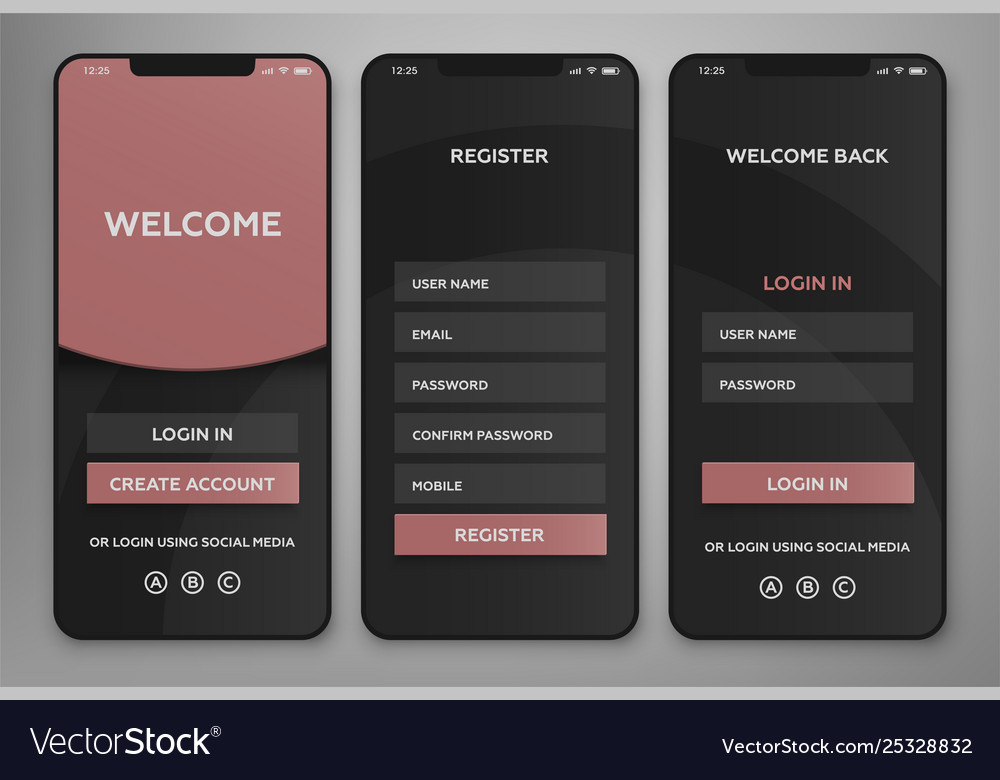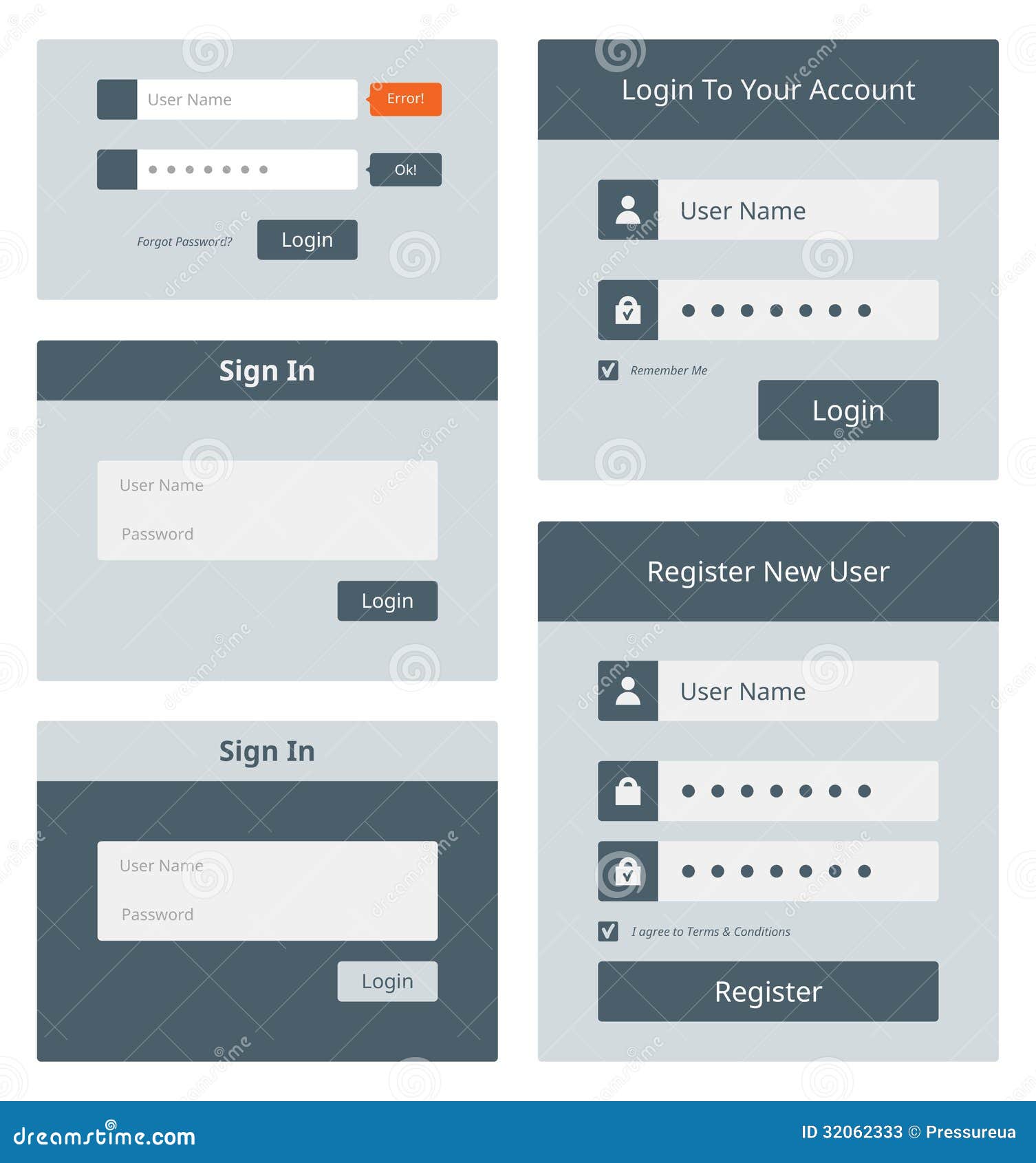Table Of Content

Though Kuehl never intended to cash the check, she said she contacted Public Investigator hoping that her experience could offer helpful information to others. The letter includes several grammatical and spelling errors, including missing periods and words like "poayment." "I just thought it was kind of a weird letter," said Kuehl, who lives in Jefferson. "I’ve gotten letters from them before about their contest, but this one seemed kind of fishy." “I just wanted to let you know that and if you could report it, that they are scamming people," Tayna said.
AVOIDING SCAMS: Staying safe as tax season wraps up
Scammers are adept at making people believe that they are affiliated with Publishers Clearing House when they're not. PCH is a popular target of scams because most Americans are familiar with the company, many have already entered the MegaPrize giveaways, and nearly all want to believe they have really won a prize. While our loyal friends, fans, and winners all know that PCH is very real and quite legitimate, we want to take this opportunity to address those with these questions and discuss the long and storied history of Publishers Clearing House. According to Leder, people often land on mailing lists that are purchased by scammers to target a specific age, race or other demographic groups. When recipients contact the company, the scammer will inform them they are required to pay a “processing” or “insurance” fee, according to the Postal Service. During these calls, individuals are usually pushed to share their credit card number.

PCH Doesn't Email or Call Its Big Winners
He also said checks distributed to a prize winner would not reference any third-party organizations. Kuehl's check, for example, was issued by an organization called Farmers Property and Casualty Insurance Company in Oklahoma City. "On behalf of members and staff of Publishers Clearing House, Association of North America lottery and provincial sweepstakes, we sincerely congratulate you on the grand prize winnings of ($750,000)," the letter read. "If someone tells you to pay a fee for 'taxes,' 'shipping and handling charges,' or 'processing fees' to get your prize, you're dealing with a scammer," the agency warned. Publishers Clearing House, the Jericho-based sweepstakes and magazine subscription company, plans to lay off 156 workers at its headquarters starting in July, according to a state filing. According to the complaint, the deception starts from the company’s homepage, where consumers complete an “Official Entry Form” with a large button with phrasing like “WIN IT!
About the FTC
When we have more information about the refund program, we will post updates here and provide information directly to consumers who are eligible for a refund. You see, behind every PCH shopping experience are our professional merchandise experts who travel the globe with you in mind … bringing back products we imagine you would choose if you were right there with us! Then, our highly-trained quality assurance team makes sure all of our items are in perfect working order before sending them out the door. So if you receive notification of a big prize by any method other than an in-person award, you know you're being scammed.
Imposters Posing as Publisher's Clearing House Contacting Local Residents; Don't Be a Victim – Ellwood City, PA news - EllwoodCity.org
Imposters Posing as Publisher's Clearing House Contacting Local Residents; Don't Be a Victim – Ellwood City, PA news.
Posted: Thu, 15 Apr 2021 07:00:00 GMT [source]
Verify Your Wins With Publishers Clearing House Directly
The advertisements allegedly use tricky wording that conflates ordering and entering to lead consumers to believe they must make a purchase to enter, or that purchasing will increase their chances of winning a sweepstakes, neither of which is true. If you receive an email, phone call, email or letter from Publishers Clearing House saying that you're a big winner, it's easy to get so excited that you do or agree to things that make you vulnerable to money and identity theft. That's why it's important to be able to tell the difference between a legitimate prize win and a sweepstakes scam.
Playing it Safe: Explore the FTC's Top Video Game Cases
Publishers also received a sales tax exemption of up to $1.6 million on its purchases of equipment for the site. The FTC’s complaint charges that where PCH included disclaimers or clarifying information on shopping pages, it was in small, light font, below the “call to action” buttons, and overlooked by consumers. Publishers Clearing House works diligently to fight scams, both by working with law enforcement officials and through public education. If you've gone through the steps above, but you're still not sure if your win notice is legitimate, contact PCH directly to ask them to verify your prize. Before you respond to any win notice, especially those from big companies like PCH, take some steps to verify your prize wins. You may have to fill out an affidavit to verify eligibility if you win, but not when you enter.
Christopher Irving, vice president of consumer and legal affairs at Publishers Clearing House, said the company never sends checks to consumers to tell them they have won a prize. When a person wins a major cash prize from Publishers Clearing House, representatives from the company show up unannounced with their "Prize Patrol" carrying a large check, flowers and champagne, he said. When PCH fans find and follow the page, the scammers message them to tell them they've won a prize — and ask for money before they can claim their "winnings." Victims hand over cash but never see a prize. If you use it, however, you transmit your information directly to scammers instead.
Scammers stole more than $400,000 from a woman through an elaborate Publisher's Clearing House sweepstakes scam: police
For example, Kuehl's letter states that she was entered into the sweepstakes as a result of "cross-promotion by marketing companies." The letter lists Publishers Clearing House, MasterCard, Visa, and the state lotteries as partners. So, PCH and the Federal Trade Commission try to educate folks about sweepstake scams that devastate the lives of victims.If you hear from scammers or fall victim, PCH said to contact them and local law enforcement. Her brother sent a gift card to scammers who claimed he won the PCH million-dollar sweepstakes.
Still Not Sure? Get More Tips Directly From PCH.com
Discover what millions of satisfied customers are already enjoying with the quality and value that PCH delivers right to your door. Over 40% of PCH's profits go to trusts for the benefit of charities that support the arts, the environment, medical research and services and other worthy causes. Remember, every day and every place you play with PCH means MORE WAYS TO WIN, so don’t miss out on a single opportunity — enter PCH sweepstakes today. You can also follow these steps to report a scam directly to Publishers Clearing House. You don't have to give Publishers Clearing House your address, PCH account number, bank account number, driver's license number, or any other confidential information when you enter.
Her brother was about to send more gift cards before she caught on to what was going on and quickly stopped him before he lost hundreds, even thousands of dollars more. By the end, Judd said she had sent Lawrence and Richards $477,000 in three separate checks. Lawrence and Richards face felony charges of first-degree theft and scheme to defraud, according to court records. WARN, the state Worker Adjustment and Retraining Notification Act, requires that companies with 50 full-time employees or more file a notice of a mass layoff or a closing 90 days in advance. In a statement, Sheldon L. Shrenkel, chief executive and executive director of the Nassau County IDA, said the agency was aware of Publishers’ state layoff filing and was working with the company to address its job commitments.
Sources of revenue for the company are digital advertising, search advertising and the sale of merchandise and magazines offered as bill-me later free credit, with 100% satisfaction guaranteed. If you've already sent money to a PCH scammer, contact your local police office. You'll also need to be extra cautious in the future because scammers consider people who have already been scammed to be easy prey, and there's a good chance that you will be targeted again. If your prize notification asks for money to pay for taxes, to release the prize, to pay for customs, or for any other reason, it's a scam.
Publishers Clearing House was founded in 1953 by Harold and LuEsther Mertz and their daughter, Joyce Mertz-Gilmore. From their garage, mailings were created offering consumers an unprecedented array of discounted magazine subscription offers. In 1967 the company launched a sweepstakes to draw attention to its magazine deals and a chance to win money has been a part of the PCH promotional mix ever since.
In 1999 PCH launched pch.com, and in recent years, a family of online free-to-play, chance-to-win properties and mobile apps have been developed in support of the brand identity that “It's All About Winning” at Publishers Clearing House. Our continued success in today's new digital publishing environment is built on PCH's unique, free-to-play, chance-to-win propositions. Data and analytics have always been at the core of the PCH business strategy to optimize relevant engagement through personalized offers based on first-party relationships. We continue to evolve as a multi-channel media company that combines digital entertainment and direct-to-consumer marketing and commerce, creating an attractive destination for consumers, marketers, and retailers alike. Instead, the complaint charges, consumers enter an arduous journey through pages of advertisements and sales pitches before they can actually enter the sweepstakes.










